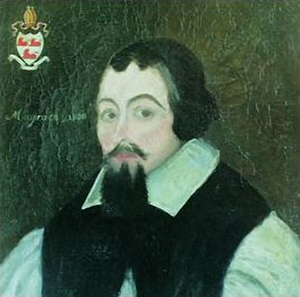November 14
Published in On this Day listing- 1981 Revd Robert Bradford (40), Ulster Unionist Party MP for South Belfast, was shot dead by IRA gunmen in a community centre in Finaghy, Belfast. An attendant at the centre was also killed.
- 1920 Fr Michael Griffin from Barna, Co. Galway, was abducted from his home by Auxiliaries. His body, with a single gunshot wound to the head, was later found in a shallow grave.
- 1981 The Revd Robert Bradford, Official Unionist MP for Belfast South, was assassinated by the IRA at a constituency clinic in Finaghy.
- 1918 Séamas O’Kelly (43), playwright, novelist and journalist, died from a brain haemorrhage following an incursion into his office by an anti-Sinn Féin mob celebrating the armistice.
- 1827 Thomas Addis Emmet, elder brother of Robert Emmet, United Irishman and lawyer who became the first attorney-general of New York State (1812–13), died.
- 1622 Milar Magrath (aged c. 100), clerical rogue, died. A Franciscan friar who married and fathered nine children, a Catholic bishop who turned Anglican and accumulated a portfolio of bishoprics—famously sitting as both a Catholic and an Anglican bishop over a nine-year period—and a collaborator with Elizabeth I’s anti-Catholic regime, Magrath was a supreme opportunist … and a great survivor, living through ecclesiastical upheaval and two major rebellions. Appointed bishop of Down and Connor in 1565, he took the Oath of Supremacy and was rewarded with the diocese of Cashel in 1571, a post he held until his death. During the Desmond Rebellions he served both sides: enough harassment of the Catholic clergy to placate the Crown and the odd tip-off to keep the rebels at bay. And if his cathedral was described as ‘no better than a hog sty’, he was rewarded with Waterford and Lismore and later Killala and Achonry. During the Nine Years War he again pledged his loyalty, at the same time reassuring his kinsman, Hugh O’Neill, that he would return to Catholicism but ‘had to see to his children’, all of whom held lucrative posts in the see of Cashel, and, of course, his wife, described as ‘a life-long devout Catholic’. Even in his 90s, with his churches in ruins, he was still seeking new bishoprics, or at least what he called a ‘reasonable pension’, being, as he put it, ‘aged, impotent, impaired, and almost quite spent in mind, means and credit’. In the meantime, he was making overtures to Rome, through his Franciscan brethren, about reconverting to Catholicism. There is no evidence, however, of a deathbed conversion.

Above: Milar Magrath—a supreme opportunist.
- 1614 Giolla Brighde (Bonaventure) Ó hEódhusa, Franciscan priest who produced the first printed work of the Catholic Counter-reformation, a cat-echism in Irish, died in Louvain.
- 1622 Milar Magrath (98/99), clerical rogue who held Catholic and Anglican bishoprics at various times, died.
- 1922 The BBC, with a mission to ‘inform, educate and entertain’, took to the airwaves with a short news bulletin and a weather forecast.
- 1923 The Nobel Prize for Literature was awarded to the poet and playwright W.B. Yeats.
'
















